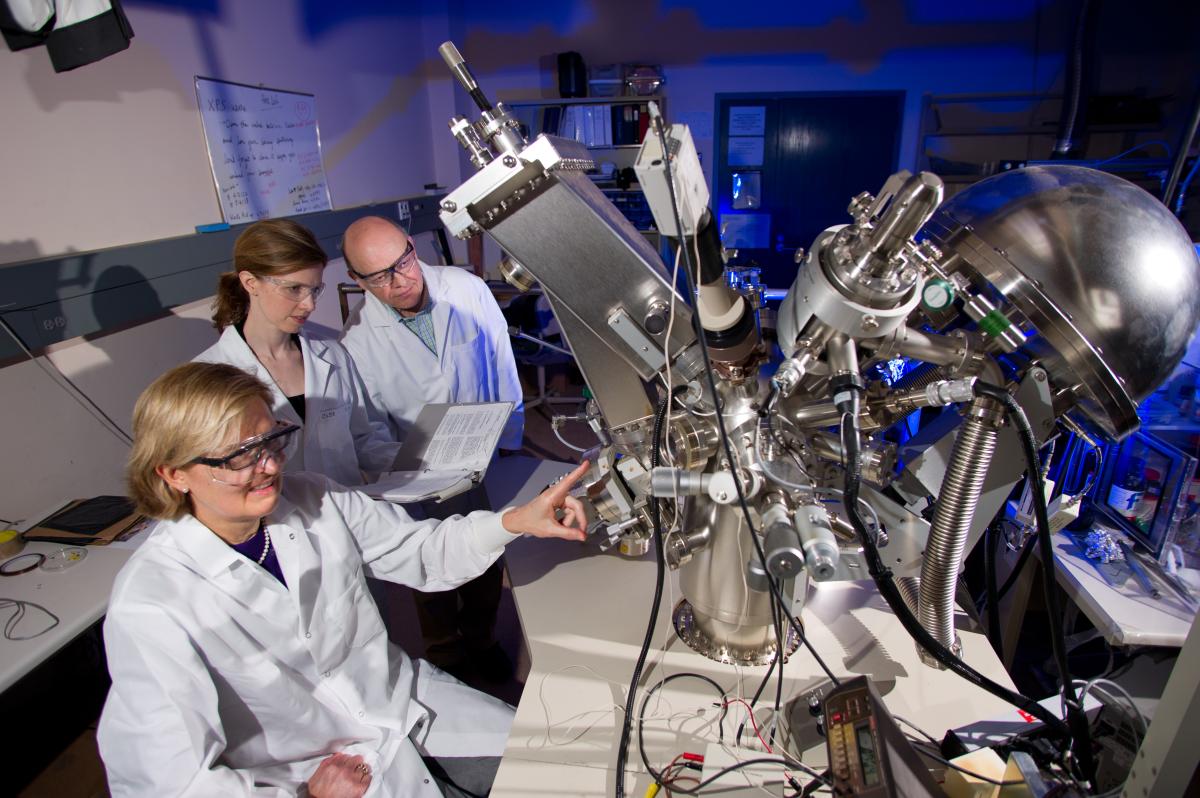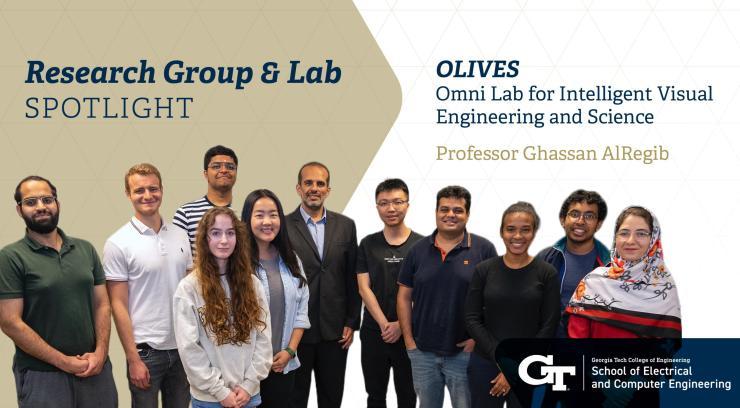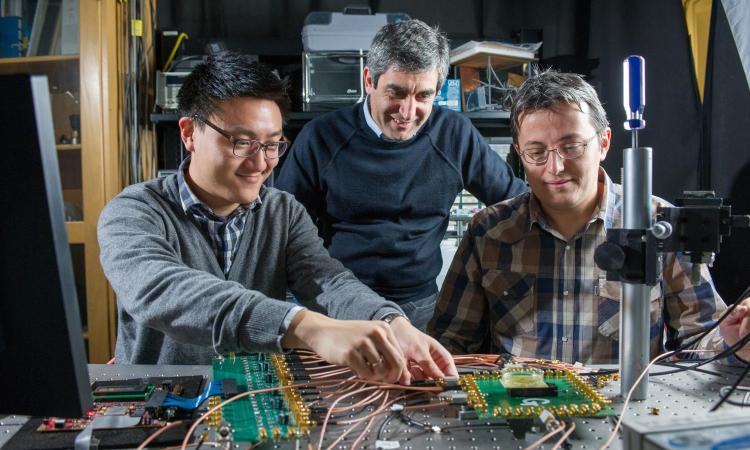Undergraduate Research Programs
The School of ECE's large research program offers undergraduates a variety of ways to become involved in research activities. Depending on their goals, students can choose to be involved in either individual or group projects that are either short- or long-term. Whether looking for hands-on experience or an early taste of graduate-level research, students can find a program to match their interests.
FORMS TO REGISTER ECE UNDERGRAD RESEARCH
ECE undergraduate students may participate in the following programs:
OPPORTUNITY RESEARCH SCHOLARS PROGRAM (ORS)
ORS matches 2-3 undergraduate electrical and computer engineering students with a Ph.D. mentor. Each research team meets weekly to work on a structured research project and attends monthly enrichment workshops addressing a variety of topics related to academic success. Students may join ORS as early as their freshmen years and can continue to participate throughout their undergraduate studies. Learn more about ORS.
THE VERTICALLY INTEGRATED PROJECTS (VIP) PROGRAM
Students can join and, eventually, even lead design teams that function just like ones in industry. Faculty, staff, and graduate students will teach students what they need to know to succeed. As early as their sophomore years, students can earn one or two credits per semester as they learn to design, build, and deploy real systems. Students who earn at least 6 hours of VIP credit can count up to 3 hours as ECE elective credit.
VIP projects can continue for many years with large student teams of 10 to 20 students, ranging from sophomores to Ph.D. students. See which VIP projects are currently underway.
ECE'S UNDERGRADUATE RESEARCH OPPORTUNITIES PROGRAM (UROP)
ECE's traditional undergraduate research program has been in place for over 20 years and offers students a chance to work on individual research projects with ECE faculty. Students who complete both semesters of UROP research can count the 3 credit hours as ECE elective hours.
The first step for interested students is to find a faculty advisor for your research. Your advisor may be someone you've taken a class from or just someone working in an area that interests you. Browse through our research areas and faculty profiles.
There are two UROP course sequences, ECE 3951/3952 and ECE 4951/4952, and a student's class year determines which courses he or she will take. The first course (i.e., ECE 3951 or ECE 4951), which is one credit hour and pass/fail, gives the student a chance to get started and learn about the research topic. The majority of the research is typically done during the second semester (ECE 3952 or ECE 4952), which is a 2-credit hour, letter grade course.
UROP Request to Register forms are due, at the latest, by noon on the Wednesday of the first week of classes; these forms must be signed by the faculty research advisor. Forms may be picked up in the ECE Undergraduate Office (Van Leer, W-208) or download the UROP form in pdf format.
THE RESEARCH OPTION IN ECE
Students desiring an extended, individual research project that lasts 3 or 4 semesters may be interested in the Research Option. Many ECE students enter the Research Option after experiencing our UROP program. The Research Option consists of 9 hours of research coursework, either for credit or for pay; LCC 4701 and an associated research proposal; LCC 4702 (during the last semester of research); an undergraduate thesis; and a web portfolio. More information about the Research Option in ECE may be found at these links:
For additional information about undergraduate research at Georgia Tech, please visit the Georgia Tech Research Opportunities website.
For specific questions about ECE undergraduate research programs, please email our Office of Undergraduate Affairs.
ECE RESEARCH OPPORTUNITIES
The Research Opportunities website hosts open research positions in ECE related fields for undergraduate and graduate students. The website also lists current ECE research labs and research opportunities. Learn more about current opportunities.
Key Research Areas
Through various funding programs, the Department of Electrical and Computer Engineering at Rice University has demonstrated leadership in focused key research areas from data science to neuroengineering.

Research Groups & Labs
Our faculty lead more than robust research teams, working in an array of fields that are often highly interdisciplinary–including integrated circuit technology, robotics, mobile computing and telecommunications systems, and neuroengineering.

Our Faculty
Our internationally recognized faculty are well respected for their research, industry accomplishments, and expertise in teaching.

